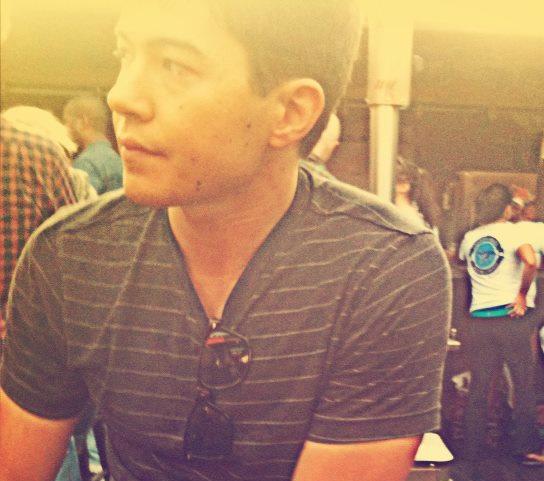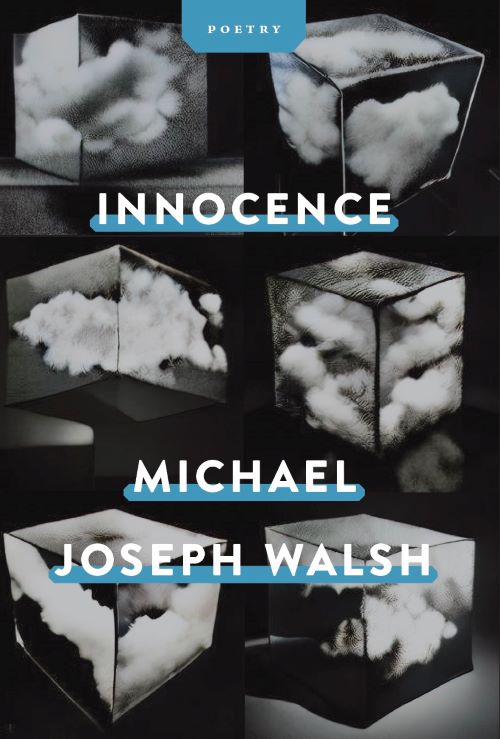You can grow some things,whether you want them or not.The air that surrounds us here we call music,the force of which is old, and full of life.It imagines us here, and finds pleasure in the shape of our wound.The door is open, and above and aboutthe common flowers the adventure of prolongingother logics spreads weakly in two directions.To this I give myself, and it heals me,reinfects me with the shape of this place.I sleep, I form opinions. When it rises to the surface of the mind, I greet the sun.How otherwise should I have devised this dance of omission?To falter before the building,to fall over every inch of it.And thus the music livesthe ghosts wind up the spirit;shortcuts to pleasure, wounded springs.But what happens tomorrow will change all that,like a diamond left out in the cold.And yet I would, if you wished,tear a hole in this fabric we’ve made,and so distend the earth,and grow drunk on our non-continuance. The cipher burnsslowly the thing it pleases,and this is knowing, but like the heart not knowing quite how.The waves breathe long, and the smell of earthin the half-shade points to a sex that would be myriad,and shimmer, and derive from touchwhat in stillness will come to pass—here where the wind blows, and a body lives,and where the grasses that are not deadwill tell the story of what that means.
Common Flowers
Feature Date
- December 14, 2022
Series
Selected By
Share This Poem
Print This Poem
“Common Flowers” from INNOCENCE: by Michael Joseph Walsh.
Published by Cleveland State University Poetry Center in October 2022.
Copyright © 2022 by Michael Joseph Walsh.
All rights reserved.
Reproduced by Poetry Daily with permission.

Michael Joseph Walsh is the author of Innocence (CSU Poetry Center, 2022) and co-editor of APARTMENT Poetry. His poems, reviews, and translations from the Korean have appeared in the Brooklyn Rail, Denver Quarterly, DIAGRAM, Guernica, FOLDER, Fence, jubilat, and elsewhere. He lives in Denver.

Cleveland, Ohio
Cleveland State University
"Complete as first books of poetry rarely are, integral as first books of poetry rarely are, Innocence reads as if it exists only to be; it pursues no end other than its own being, which is the end of all successful works of art, whatever a particular work’s subject. Innocence is “that spoken thing / Only now created / That opens out into every room,” which is to say, alive from beginning to end, a life."
— Shane McCrae
"This meditative, alternately lulling and troubling book takes place in the discrepancy between our imagined futures and the brutal, real present, or their uncanny overlap, 'a hybrid machine': 'some golden / coherence // which is the violent perception / of a mistake.' 'It is eerie to live.' Innocence is intimate and distant, haunting and estranging, 'a dance of omission.'”
— Elisa Gabbert
"At once almost authorless—like a great Bridget Riley painting or DJ Shadow’s Endtroducing—and intensely intimate—Michael Walsh has some 'wild news' for you!—the poems in Innocence are responsible for some of the most rewarding reading experiences I’ve had as of late. There’s a strange and rare sort of transport to them: 'Yet now I feel like dancing,' says a speaker who also seems to feel like a motherless child. And though there’s a lot to learn from Walsh’s adroit lineation (which at times feels akin to William Hunt’s in his terrific and vastly underappreciated Of the Map That Changes) I think I like crawling through the briars of the prose of 'Insider,' with its many 'realizing grace[s],' best. This is a first book of the first water."
— Graham Foust
Poetry Daily Depends on You
With your support, we make reading the best contemporary poetry a treasured daily experience. Consider a contribution today.



